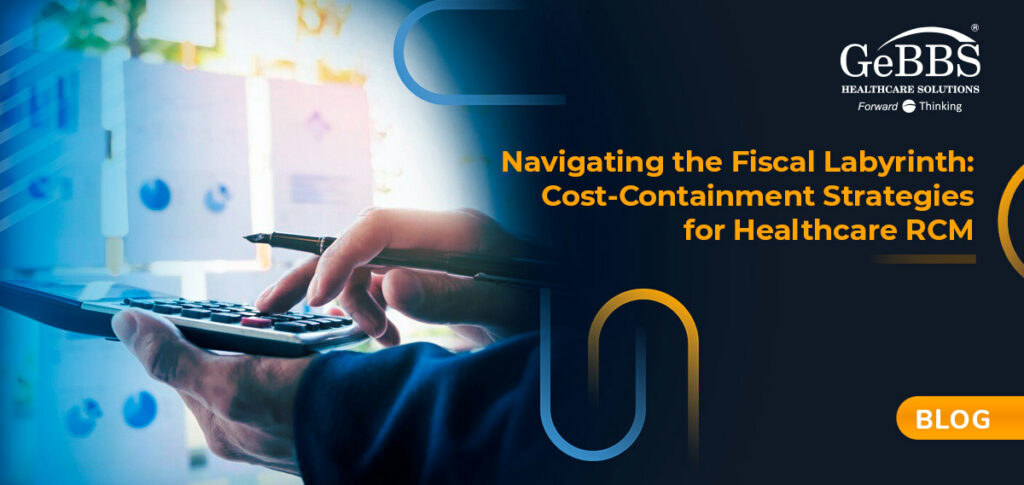Revenue Cycle Management (RCM) in healthcare is the financial process utilizing medical billing processes that healthcare facilities use to track patient care episodes from registration and appointment scheduling to the final balance payment.
RCM unifies the business and clinical sides of healthcare by combining administrative data, such as a patient’s name, insurance provider, and other personal information, with the treatment a patient receives and their healthcare data.
For FQHCs, RCM is not just about managing billing and payments; it’s about ensuring the sustainability of service provision to some of the most vulnerable populations. Given the complexity of healthcare billing and the specific challenges FQHCs face, such as serving a highly uninsured population and dealing with varied funding sources, efficient RCM becomes even more crucial.
The Significance of Efficient RCM for FQHCs
Efficient RCM processes are vital for FQHCs for several reasons:
- They ensure these centers can capture the maximum eligible revenue for their services. This aspect is particularly crucial given that FQHCs operate on tight budgets and often serve patients who cannot pay.
- Streamlined RCM processes help reduce billing errors and denials, a significant source of lost revenue.
- Efficient RCM allows FQHCs to maintain compliance with healthcare regulations and reporting requirements, which are essential for continued funding and operation.
A key metric in assessing the efficiency of RCM processes is the net collection rate, which measures the percentage of total potential revenue that the facility collects. A 95% or above rate is generally considered strong, indicating practical collection efforts.
Another important aspect is the management of bill lag, the time between when a service is provided and billed. Shortening this duration ensures quicker revenue realization and can significantly impact an FQHC’s cash flow.
Challenges in RCM for FQHCs
FQHCs face several unique challenges in their RCM healthcare processes. The diversity of the patient population, including a significant portion without insurance, adds complexity to billing and collections. Additionally, FQHCs often deal with multiple funding sources, each with its billing requirements and regulations, making the RCM process even more complex.
The Affordable Care Act (ACA) highlighted the need for FQHCs to strengthen their RCM processes and diversify revenue streams. It also highlighted the importance of efficient RCM lifecycle management, from scheduling an appointment to receiving or denying payment.
The Impact of Efficient RCM on Patient Care
Beyond the financial implications, efficient RCM processes significantly impact the quality of patient care. By reducing the administrative burden on healthcare providers, they can focus more on patient care.
Furthermore, efficient billing processes can enhance patient satisfaction by minimizing billing errors and improving the transparency of billing practices.
Unlocking Financial Stability in FQHCs: A Deep Dive into Revenue Cycle Management
Federally Qualified Health Centers (FQHCs) emerge as critical threads weaving together essential services for underserved communities. These centers, by design, bridge the gap in healthcare accessibility, yet the complex dynamics of healthcare financing test their sustainability.
At the heart of this financial challenge lies the intricate and pivotal process of Revenue Cycle Management (RCM), which, when optimized, can significantly enhance the operational efficacy and financial health of FQHCs.
The Genesis of RCM Healthcare in FQHCs: A Story of Necessity and Innovation
Imagine a patient’s journey through the healthcare system, from the initial appointment to the final settlement of the bill. This journey, fraught with clinical and administrative checkpoints, encompasses the essence of RCM. For FQHCs, this isn’t merely a backend operation but the lifeline that ensures they can keep their doors open to those in dire need.
Efficient RCM in FQHCs is not just about billing and collections; it’s a holistic approach ensuring these centers can capture the maximum eligible revenue for their services, crucial for operations that often run on razor-thin margins.
The Crucible of Challenges: Navigating the RCM Labyrinth
FQHCs face a unique set of challenges that complicate their RCM processes. These range from serving a highly uninsured population to grappling with diverse funding sources, each with its billing requirements and regulations.
While expanding access to insurance, the Affordable Care Act also underscored the need for FQHCs to bolster their RCM processes and diversify revenue streams to remain financially viable.
Thus, metrics, such as the net collection rate, gauge the percentage of total potential revenue collected and become barometers of RCM efficiency.
For FQHCs, a 95% or above net collection rate indicates robust collection efforts. Another vital metric is bill lag—the interval between service provision and billing. Minimizing this lag is crucial for enhancing cash flow and operational efficiency.
The Road to RCM Optimization: Strategies and Solutions
To surmount these challenges, FQHCs can deploy several strategies:
- Technology Integration: Leveraging advanced Electronic Health Records (EHR) systems and integrating them with practice management systems can streamline billing, reduce errors, and ensure timely charge capture.
- Staff Training and Specialization: Continuous training on the latest billing practices and regulations can significantly improve the accuracy and efficiency of RCM processes.
- Outsourcing vs. In-House Billing: Keeping or outsourcing RCM processes in-house is pivotal. Outsourcing can offer access to specialized expertise and technology, while in-house billing provides direct control over operations.
- Performance Monitoring: Regular review of key performance indicators such as net collection rate and bill lag can help FQHCs pinpoint areas for improvement and enhance their RCM operations.
The Ripple Effects: Beyond Financial Metrics
The implications of efficient RCM extend far beyond balance sheets and financial statements. By alleviating the administrative burden, healthcare providers can refocus on their primary mission—patient care.
Moreover, streamlined RCM processes can elevate patient satisfaction by minimizing billing errors and enhancing transparency, fostering a more trusting patient-provider relationship.
A Beacon of Success: The North Shore Community Health Center Case Study
The transformational journey of North Shore Community Health Center underscores the profound impact of efficient RCM on FQHCs. With dwindling returns from its RCM operations, the center’s decision to outsource its medical billing to GeBBS catalyzed a remarkable turnaround, driving almost $18 million in additional revenue over six years. This strategic pivot elevated collection efficiency to 98-99% and significantly increased revenue per encounter, showcasing the tangible benefits of RCM optimization.
In Conclusion: A Call to Action
As FQHCs continue to navigate the turbulent waters of healthcare provision, optimizing RCM processes emerges as a beacon of financial stability and operational efficiency. By embracing technological advancements, investing in staff expertise, and meticulously monitoring performance metrics, FQHCs can fortify their financial foundations.
This, in turn, enables them to continue their noble mission of providing indispensable healthcare services to those most in need, ensuring that no individual is left behind in the pursuit of health and well-being.
FQHCs epitomize the commitment to universal access and equity in the grand healthcare narrative.
The optimization of RCM healthcare is not just an operational necessity but also a strategic imperative that empowers these centers to sustain and expand their invaluable services, weaving a stronger safety net for communities nationwide.
Sources:
https://www.mossadams.com/articles/2022/01/billing-solutions-for-fqhcs






